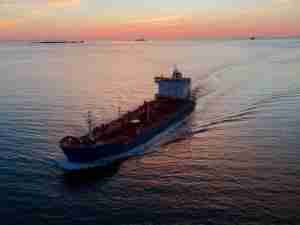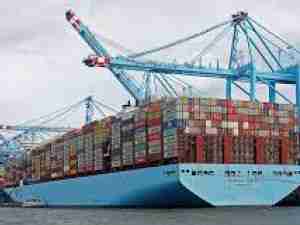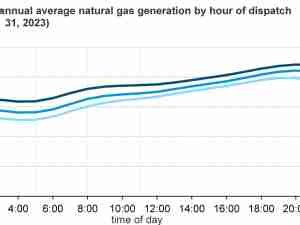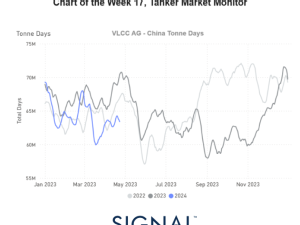Methane leaks from an older generation of ships powered by liquefied natural gas are limiting the climate benefit of the fuel, Mitsui OSK Lines Ltd. President Takeshi Hashimoto said in an interview in India on Tuesday.
Although ships using LNG result in about 25% less carbon dioxide emissions than traditional marine fuels, older vessels often fail to burn all the methane. That means some of it leaks directly into the atmosphere where it can have a devastating climate impact.
The comments — a rare public acknowledgment of the leakage issue from a major shipper — are all the more telling because of Mitsui OSK’s size. The firm marshals a fleet of more than 800 ships transporting everything from oil to gas to commodities to goods in containers. The remarks highlight how the industry is becoming increasingly concerned that releases of the potent greenhouse gas are worse than initially thought.
“When we started using LNG, people didn’t care about the methane slip,” Hashimoto said in Goa, where he was attending India Energy Week. “Everybody recognizes that this methane issue should be sorted out and the brand new vessels are much better than before.”
Despite the slippage, LNG-powered ships still have a better overall emissions profile than conventional fuel oil-burning vessels, Hashimoto said, adding that his firm is working to improve its own fleet’s performance.
Hashimoto said he nevertheless believes that shipping firms should maximize use of LNG now, and gradually switch to green methanol, green ammonia or green hydrogen as those fuels become available.
The issue of methane slippage has already caught the industry’s attention with one study back in 2020 saying that the environmental damage some LNG-powered carriers cause over a 20-year period is far more acute than equivalent vessels run on conventional fuels.
Hashimoto’s comments echo research that shows that methane leaks from commercial shipping are significantly higher than the likes of the European Union and International Maritime Organization had assumed.
Methane is the primary component of natural gas and has more than 80 times the warming power of CO2 during its first two decades in the atmosphere.
The most common type of LNG marine engine — low pressure, dual-fuel, four-stroke engines — emit on average more than twice as much methane than assumed by the EU and 80% more than estimated by the IMO, according to a study released last month by the International Council on Clean Transportation, Explicit ApS and the Netherlands Organization for Applied Scientific Research.
Methane slip — the percentage of methane in fuel that is emitted unburned from an engine — averaged 6.4% in the plumes of 18 ships measured, compared with an EU assumption of 3.1% and an International Maritime Organization estimate of 3.5%, the study showed.









